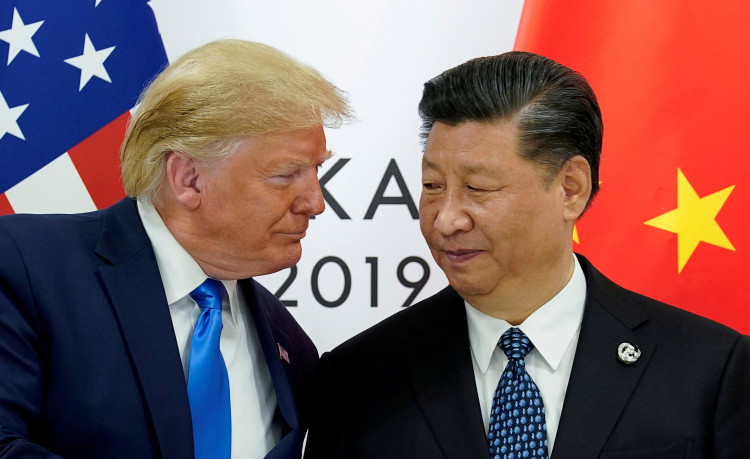President Donald Trump said Thursday he spoke for 90 minutes with Chinese President Xi Jinping in a long-awaited phone call focused "almost entirely" on trade, as the U.S. and China prepare to resume negotiations after weeks of public recriminations and rising tariff pressure. Trump called the conversation "very good" and said it produced "a very positive conclusion for both Countries."
The White House has not released a readout of the call, which Chinese state media said was initiated at Trump's request. According to Beijing's Ministry of Foreign Affairs and China's embassy in Washington, the U.S. president proposed the conversation, which both sides described as constructive.
Trump announced on Truth Social that U.S. officials would soon meet with their Chinese counterparts at a location yet to be determined. Representing the U.S. side will be Treasury Secretary Scott Bessent, Commerce Secretary Howard Lutnick, and U.S. Trade Representative Jamieson Greer.
The call comes at a critical point in U.S.-China relations, with the trade relationship-valued at nearly $600 billion in 2024-under renewed strain. Trump confirmed that Xi invited him and First Lady Melania Trump to visit China and that he reciprocated with an invitation for Xi to visit the U.S. "There should no longer be any questions respecting the complexity of Rare Earth products," Trump wrote, though he did not elaborate.
Ahead of the call, Trump had signaled both his admiration and frustration with Xi. "I like President XI of China, always have, and always will, but he is VERY TOUGH, AND EXTREMELY HARD TO MAKE A DEAL WITH!!!" he posted Wednesday morning.
The Thursday conversation marked only the second confirmed call between the two leaders since Trump returned to the White House in January. Their previous exchange occurred on January 17. The Geneva Agreement reached last month-under which both countries agreed to temporarily reduce tariffs-appeared to be unraveling in recent days, as Trump accused China of violating the truce by slow-walking rare earth export licenses.
China cut tariffs on U.S. goods from 125% to 10%, while the U.S. reduced duties on Chinese imports from 145% to 30% following the Geneva talks. However, tensions reignited after Greer and other officials publicly criticized Beijing for allegedly failing to fulfill licensing provisions related to critical minerals.
National Economic Council Director Kevin Hassett said Sunday that both leaders were expected to revisit the Geneva deal. "People had to-in China-give us licenses for things, and the licenses, we believe, have been slow rolled," Hassett said on ABC's This Week. "That is something that the presidents want to talk about."
China, for its part, denied violating the Geneva terms and accused the U.S. of instigating new economic conflict. On Monday, Beijing said it "firmly rejects unreasonable accusations" and blamed Washington for "unilaterally" provoking trade tensions.
Relations also remain strained over the Trump administration's recent restrictions on Chinese student visas and export controls targeting China's semiconductor sector. Beijing responded by accusing the U.S. of undermining the Geneva consensus, while Greer last week called the licensing delays a "significant obstacle to progress."
Despite Thursday's positive tone, markets showed only brief optimism. Stocks opened higher on hopes of a breakthrough but retreated as investors awaited substantive policy details.





